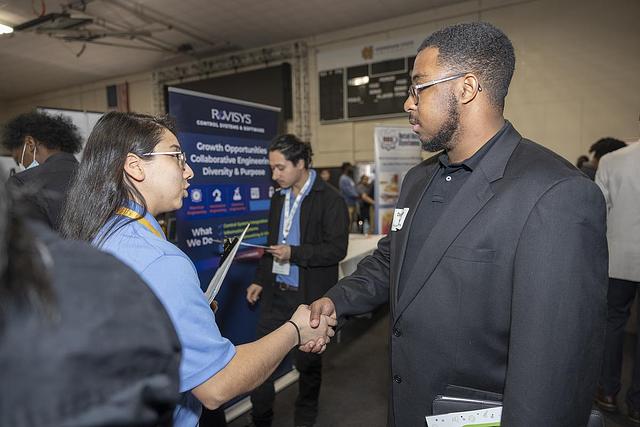Internships: Creating High Impact Practices
High-impact internships offer far more than just work experience—they empower students to take on real projects, gain diverse exposure, and grow both personally and professionally. When interns are engaged, challenged, and supported, they develop lasting skills while contributing meaningfully to your organization. To create a high-impact experience, we encourage employers to focus on four key elements:

-
Purposeful Work
Interns thrive when they’re given meaningful responsibilities. Assign projects that contribute to real outcomes, not just observation or busywork. Consider co-creating learning goals with your interns to ensure alignment with both organizational needs and student aspirations. Encourage them to produce work samples they can showcase in their professional portfolios and involve them in decision-making processes where appropriate. -
Professional Exposure
Broaden interns’ understanding of your organization and industry by offering diverse exposure:
- Rotate them through different teams or departments.
- Invite them to leadership meetings or strategic planning sessions.
- Provide opportunities to observe various communication styles, problem-solving approaches, and project management strategies.
- Allow time for informational interviews with employees across roles and levels.
This kind of exposure helps interns see the bigger picture and understand how their work fits into the organization’s mission.
-
Mentorship & Connection
Strong relationships are the foundation of a successful internship. Foster connection through:
- Dedicated mentorship from supervisors or team leads.
- Collaboration with peers and cross-functional teams.
- Networking opportunities with professionals who may become future contacts or advocates.
Intentional relationship-building increases intern engagement and helps them feel supported throughout their experience.
-
Ongoing Feedback & Reflection
Interns benefit from regular, constructive feedback and time to reflect on their growth. Implement:
- Informal check-ins and formal performance evaluations.
- Feedback from both supervisors and peers.
- Reflection activities such as learning logs, field journals, or project presentations.
Encourage interns to assess their progress toward learning goals, identify areas for growth, and connect their experiences to long-term career development.








